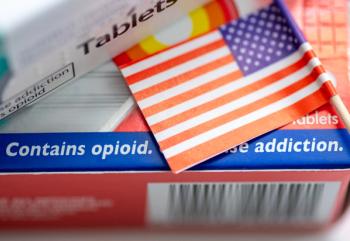
New Study Examines Potential of Oxytocin as Pain Management Adjunctive, Addiction Treatment
The “cuddle hormone” plays a powerful role in human behavior and may be an additional option to treat pain and manage opioid addiction.
A group of researchers from the University of Florida are conducting a study evaluating whether a synthetic version of oxytocin—a hormone naturally produced in the hypothalamus—can be used as an adjunct to prescription medications to address
Oxytocin produces positive feelings in the body and is widely known as the “love hormone” or “cuddle hormone” and plays an important role in human behaviors including trust, romantic attachment, sexual arousal, and parent-infant bonding.2 It is also crucial to the childbirth process: two synthetic versions of oxytocin (Syntocinon, Pitocin) can be used to induce labor or strengthen contractions. Additionally, research results have shown a link between low levels of oxytocin and depression, including postpartum depression.3
In the current study, researchers will be evaluating whether oxytocin can be used not only to reduce feelings of pain, but to also simultaneously decrease the desire for opioid use. “The idea is that physicians could potentially prescribe, in combination, an opioid and oxytocin as an acute
The 2-year double-blind, randomized, placebo-controlled study will evaluate a cohort of 30 adult participants aged 55 to 85 years with a history of some opioid use. Participants will administer synthetic oxytocin or placebo via nasal spray shortly after receiving oral oxycodone. Outcome measures include cardiovascular, respiratory, cognitive, and affective responses to the treatment, as well as patient-reported responses. Investigators will collect pain measures by inducing acute mechanical and thermal pain.
READ MORE:
The is supported by over $414,000 in grant funding from the National Institutes of Health and is expected to be completed in April 2025.
This study is not the first evaluating the role of oxytocin in the
Identifying innovative and non-addictive treatments to manage pain is a public health priority. In 2017, the US Department of Health and Human Services declared the opioid crisis a public health emergency5; that declaration has been renewed as recently as March 27, 2024, by Xavier Becerra, Secretary of Health and Human Services “as a result of the continued consequences of the opioid crisis affecting our nation.”6
Earlier this year, provisional data from the CDC’s National Center for Health Statistics7 counted an estimated 107,543 drug overdose deaths in 2023—the first annual decrease in deaths since 2018, and a 3% decrease from 2022. Although deaths due to cocaine and psychostimulants such as methamphetamine increased, deaths due to opioid overdoses decreased, including those due to synthetic opioids such as fentanyl.
READ MORE:
References
Katz A. “Cuddle hormone” oxytocin may provide pain relief and help curb harmful opioid use. University of Florida College of Health and Human Performance. Accessed September 11, 2024.
https://hhp.ufl.edu/articles/2024/berry-oxytocin-as-opioid-alternative.html Oxytocin. Cleveland Clinic. Reviewed March 27, 2022. Accessed September 11, 2024.
https://my.clevelandclinic.org/health/articles/22618-oxytocin LeWine HE. Oxytocin: the love hormone. Harvard Health Publishing. June 13, 2023. Accessed September 11, 2024.
https://www.health.harvard.edu/mind-and-mood/oxytocin-the-love-hormone Mellentin AI, Finn SW, Skøt L, et al. The effectiveness of oxytocin for treating substance use disorders: a systematic review of randomized placebo-controlled trials. Neurosci Biobehav Rev. 2023;151:105185. doi:10.1016/j.neubiorev.2023.105185.
Ongoing emergencies and disasters. Centers for Medicare & Medicaid Services. Updated September 9, 2024. Accessed September 11, 2024.
https://www.cms.gov/about-cms/what-we-do/emergency-response/current-emergencies/ongoing-emergencies Renewal of determination that a public health emergency exists. Administration for Strategic Preparedness and Response. March 25, 2024. Accessed September 11, 2024.
https://aspr.hhs.gov/legal/PHE/Pages/Opioid-25Mar2024.aspx US overdose deaths decrease in 2023, first time since 2018. News release. CDC. May 15, 2024. Accessed September 11, 2024.
https://www.cdc.gov/nchs/pressroom/nchs_press_releases/2024/20240515.htm
Newsletter
Pharmacy practice is always changing. Stay ahead of the curve with the Drug Topics newsletter and get the latest drug information, industry trends, and patient care tips.























